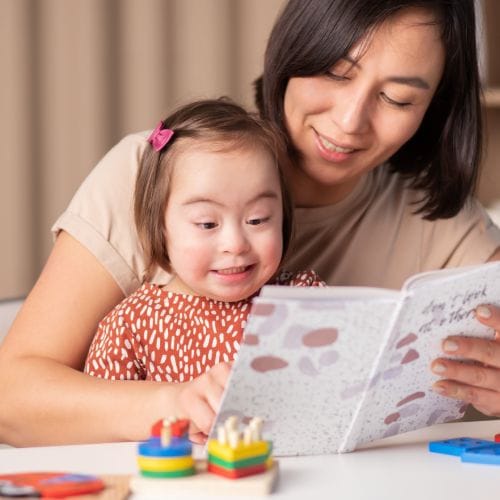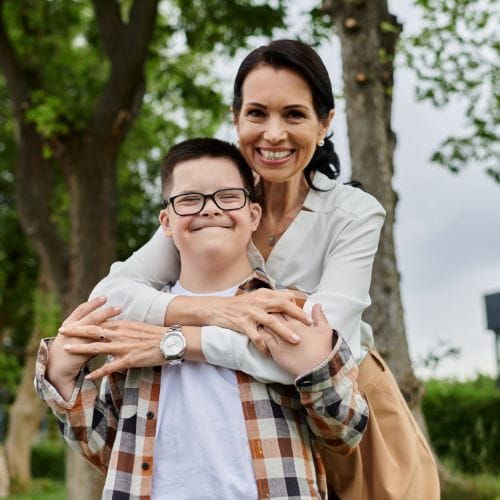What is the most important document you can create to help ensure that your loved one has the best possible life after you die? Most people would think of a special needs trust or a comprehensive set of estate planning documents. While we would agree that these documents are essential, a care plan for your child’s future may be the most valuable thing you can leave behind. Completing a care guide, also referred to as a Letter of Intent, can be an emotionally challenging process, but the benefits far exceed the emotional cost. A well-drafted care guide provides a detailed roadmap for future caregivers to maintain the quality of life for your child after you are gone. The format and the contents are up to you. The key to a well-drafted document is that it contains the information needed by future caregivers. In short, all the stuff that parents know about their child that they would want others to know, needs to be included. Some families will create a document and print and distribute paper copies to the people who will play a role in their child’s future. More commonly, we see families sharing and updating their documents electronically. There are some new services that prompt parents to upload information and images regarding various topics that can then be shared using passwords given to the future caregivers. In short, there is no wrong way to develop your care guide as long as you do something. People and agencies that you intend to play a role in the future caregiving of your child should be made aware of your intentions. You can share your expectations with them and include their input in your next update of the document. It is essential that they know the document exists and how they will get access to it either during your lifetime or after you die. If you have any questions or would like additional assistance about creating the document, please contact us directly or visit us on Spotify, The Special Needs Voice (link), to hear our recent podcast on the importance of creating a Care Guide.

Early Intervention for a New Diagnosis
We provide support and clarity in the earliest moments of your journey. We help you understand available therapies, government programs, and the steps to secure services.

Education and IEP Planning to Maximize School Success
Each person’s education needs are different, and the programs and services offered in different school districts can vary significantly. We help you understand your loved one’s right to a free appropriate public education. We can connect you with advocates and attorneys when the individualized education plan (IEP) for your child does not meet their needs. We also make referrals to specialists who can help you get the most out of your child's educational opportunities.

Protecting and Supporting Your Loved One with Financial and Legal Tools
We want you to have the best structures in place to support your loved one’s care and financial needs. We simplify complex topics like special needs trusts, ABLE accounts, guardianship vs. powers of attorney, and letters of intent. The structure of your planning and your accounts should reflect your goals. We coordinate with your team of attorneys and other advisors and can introduce professionals as needed.

Planning for Your Loved One's Adult Years
We help guide the transition of your loved one into adulthood. We can assist you in navigating post-secondary education, job coaching, housing options, benefits planning, and social engagement to support a full and meaningful adult life for your loved one.

Understanding and Accessing Government Benefits
Obtaining and maintaining access to government benefits is a critical component of special needs planning. We help you avoid common pitfalls that jeopardize eligibility, while assisting you in obtaining the maximum supports from programs such as Supplemental Security Income (SSI), Social Security Disability Income (SSDI), Medicaid, Medicare, and waiver programs for your loved one.

Building a Long-Term Support Plan for the Whole Family
We help you plan not just for your child's future, but for your own. We coordinate financial, legal, and care resources so your entire family - including siblings and future caregivers - is prepared and supported.
Learn More
Helpful Special Needs Services Videos

Top 10 Special Needs Planning Tip #1: Connect with Families
Transcript
Hi everyone, my name is Aaron Osterberg and I will be kicking off our new monthly series where we share a tip from our top 10 special needs planning tips.
Tip number 1: Connect with other families facing similar challenges, both locally and nationally. Building a support network can make a huge difference. Look for organizations and nonprofits, join social media groups, and participate in community events. These connections can provide valuable insights and support.
Stay tuned for tip #2 coming next month. If you want to learn more, feel free to contact us – we’re here to help! Thank you.






